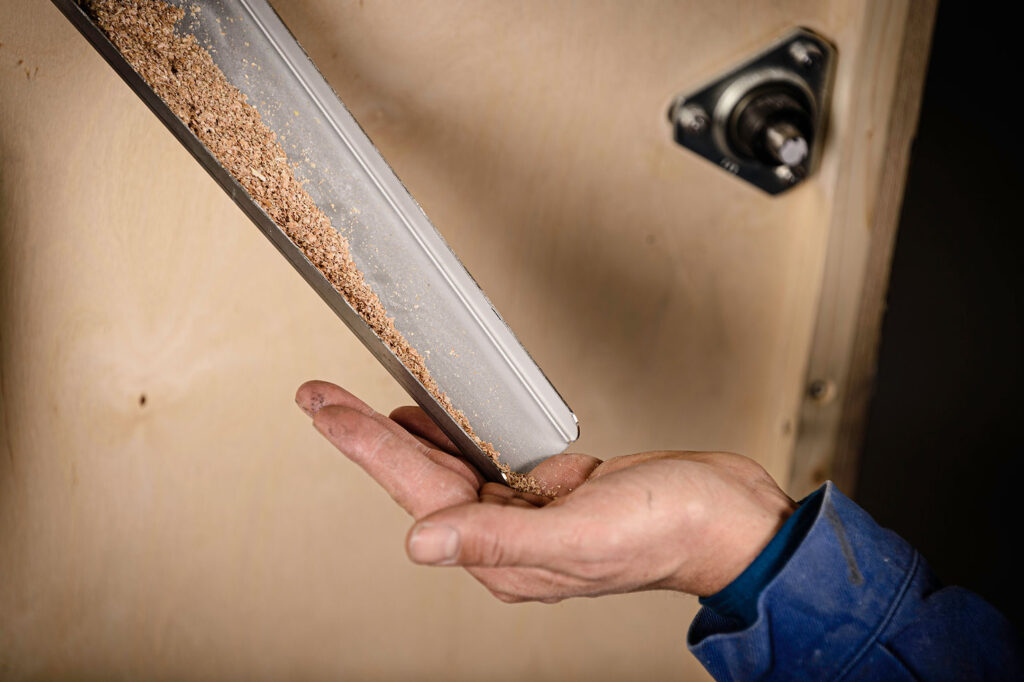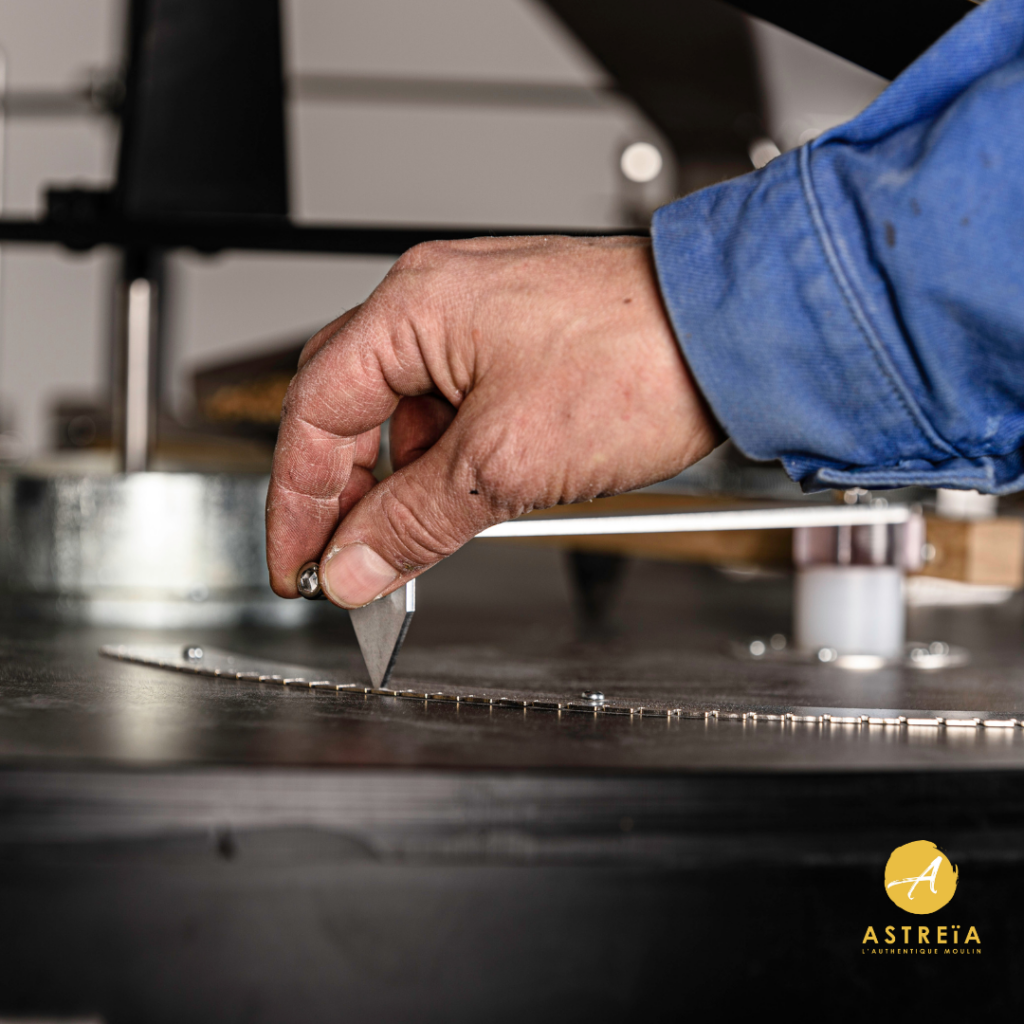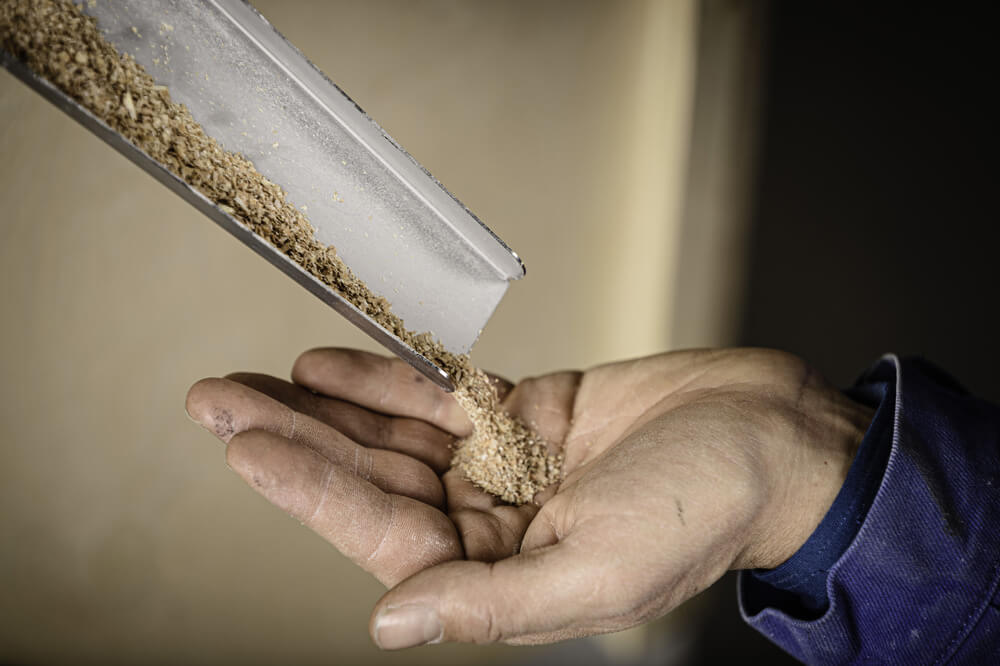For your future flour mill: Analyse your specific needs
Ask yourself simple questions like:
- how many tonnes of material do I need?
- How many hours a month can I devote to this activity?
- Who will I sell my flour from the mill to?
- Do I want to turn this flour into bread or pasta?
- Have I ever seen how a flour mill works?
We have written an article listing all the questions you need to ask yourself about a successful on-farm flour mill project.

Understanding the different types of flour mill.
Before choosing a flour mill for your farm or even your bakery, it’s important to understand the different types available on the market.
- Manual flour mills are the simplest and cheapest, but they require a lot of manual work and are designed for families and individuals.
- Electric flour mills are designed for professionals like you.
In this category of professional flour mills you will find :
- Cylinder flour mills
- Millstones flour mills
Here’s a video on how to tell the difference between these two major families of professional flour mills:
Consider the capacity and size of the mill.
When choosing a flour mill for your business, it’s important to consider the capacity and size of the mill.
Not only to find out how much flour you’ll be able to make from a given number of tonnes of grain (wheat, spelt, small spelt, durum wheat, soft wheat, maize, etc.), but also how long it will take and in what premises.
Here are the factors to take into account:
- how many tonnes of cereals do you have available for processing on the farm?
- Do you want to make as much flour as possible from as little grain as possible? If so, it’s easy to opt for an Astrié stone-ground flour mill, because other mills don’t have the same output!
- How much space do you have at home to install a stone-ground flour mill safely and in compliance with a few hygiene standards?
In fact, we’ve written a full article to help you compare all the mills: Professional flour mills comparator

Check the quality of the grind.
When choosing a flour mill, it’s important to check the quality of the grind it produces. A quality grind is essential for obtaining fine, uniform flour, which is important for your customers’ baking and cooking.
Make sure you choose a flour mill that uses Sidobre granite millstones for a top-quality grind.
Always check the sound – it’s an important indicator of the quality of your flour.
You can also check customer reviews to see if the flour mill produces quality flour.
We’ve written an article on this subject that should be of interest to you: Astrié type flour mill: the only real option for quality flour?
Choose the right manufacturer and avoid resellers
When you choose your mill, you will now choose your manufacturer. There are some well-known manufacturers in France who will make your flour mill for you by hand. There are also retailers whose well-practised sales pitch will make you forget who actually produces the flour mill and where.
It’s best to work with a quality company that’s been in business for several years, with a wide range of customer feedback, so you can easily get a good idea.
If you want to buy an Astrié flour mill, we recommend that you read this article in detail for practical advice: ASTRIÉ flour mill: which manufacturer to choose ?

To find out more about your professional flour mill
If you want to know more, we’ve put together a complete guide to the best professional flour mills.





